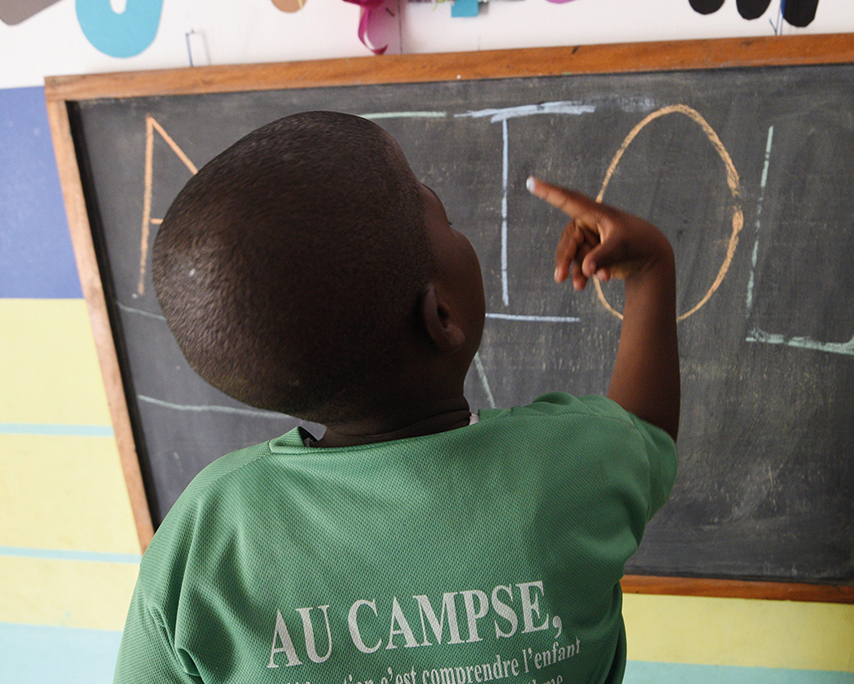Addressing Autism in Africa
Autism remains a largely misunderstood and underdiagnosed condition in many parts of Africa. Stigma and cultural misconceptions often result in children with autism being hidden away or denied access to necessary care. Many parents, fearing societal judgment, take extreme measures to keep their children out of sight. In some cases, autism is wrongly perceived as a curse or spiritual possession, further alienating affected children and their families. The deep-rooted stigma surrounding autism underscores the urgent need for widespread awareness and education to reshape perceptions and ensure individuals with autism and their families get the solutions and support they need to function in society.
Despite the growing recognition of autism as a developmental condition, World Autism Awareness Day is a good time to consider the significant gaps that persist in diagnosis and treatment across the continent. Few clinicians have the expertise to identify autism, and many diagnoses are made informally by individuals without specialised training. Reliable diagnostic tools tailored to the diverse linguistic and cultural landscape of Africa are scarce, making it difficult to assess and address autism effectively. The lack of standardised diagnostic criteria means that many children go undiagnosed, leading to missed opportunities for early intervention. Additionally, services and specialised support systems for individuals with autism are almost non-existent, leaving families to navigate these challenges with little guidance.
Many parents and caregivers have resorted to developing their own therapeutic approaches in response to these gaps. With little access to professional support, they create informal treatments to help children on the autism spectrum develop communication and social skills. However, these homegrown therapies lack scientific validation, and the absence of formal assessments makes it difficult to measure their effectiveness. While these efforts demonstrate the resilience of families, there is a pressing need for structured solutions that provide evidence-based interventions and support mechanisms.
Practical solutions should focus on empowering parents and community health workers with the necessary knowledge and skills to support children with autism. Training programmes for primary health care providers and extension workers can play a pivotal role in reducing stigma and improving early detection. By equipping these frontline workers with basic mental health training, misconceptions about autism can be addressed, and children can receive the support they need at an early stage. Parent training programmes should also be adopted to help families implement evidence-based therapies at home. These programmes can incorporate play-based routines to enhance communication and socialisation skills. Given the high illiteracy rates in some regions, training materials should be translated into picture-based instructions to ensure accessibility for all caregivers.
Furthermore, the role of parents should be central in autism research and intervention efforts. Despite not being medical professionals, parents are the primary caregivers and often possess invaluable insights into their children’s needs. Any research or policy development should actively involve parents to ensure that solutions are practical, culturally relevant, and sustainable.
A crucial step in addressing autism in Africa is collecting and publishing reliable data. Understanding the prevalence of autism and its specific manifestations in different African contexts is essential for developing targeted interventions. However, obtaining accurate data is challenging due to the lack of standardised diagnostic tools and the high costs associated with testing. Efforts should be made to localise diagnostic assessments into multiple languages to accommodate Africa’s linguistic diversity. Additionally, published research should serve as a foundation for structured solutions, guiding policymakers, educators, and healthcare professionals in implementing effective autism support frameworks.
Addressing autism in Africa requires concrete action, including reducing stigma, improving diagnosis, empowering caregivers, and strengthening research efforts. This year’s World Autism Awareness Day serves as a rallying call for researchers, therapists, families, and policymakers to collaborate in raising awareness and taking meaningful steps to expand knowledge, enhance understanding, and develop effective support systems and solutions for autism in Africa.



